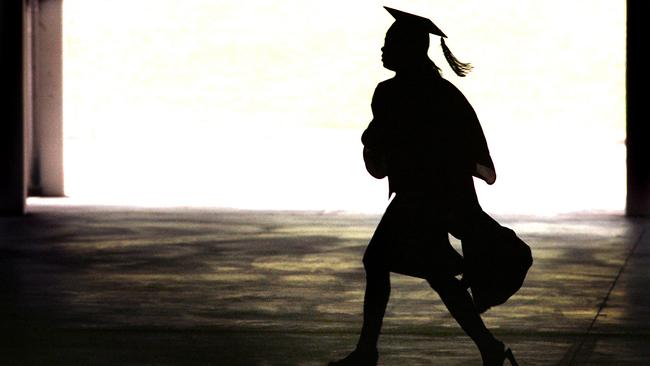Too many graduates, too few jobs … and that was pre-virus
Growing numbers of university graduates has resulted in more competition to enter their chosen profession according to a new Productivity Commission report.

An increase in university graduates has resulted in more competition for young people trying to land their dream job, with career prospects and wage growth worse for youths than people aged 35 and over.
A Productivity Commission study shows young people were struggling to find jobs in their desired occupation even before the COVID-19 pandemic, with the labour market characterised by part-time work, lower starting wages for youths and a limited choice in occupations despite the uptick in education that followed the global financial crisis.
The study shows that since 2008, more graduates were forced to find jobs “lower down the ladder”, and this had a lasting impact on their career.
“We have seen substantial increases in university graduates in Australia over the past 10 years or so,” commissioner Catherine de Fontenay said. “Unfortunately, for many graduates that has just meant more competition to enter their chosen profession.”
The report argues that while the GFC had less of an impact in Australia compared to other countries, its after-effects combined with the slowing of the mining boom led to a decade of relatively weak labour demand.
Instead of being characterised by the high unemployment seen after the 1991 recession, the post-2008 labour market featured an increase in part-time employment, lower starting wages for young people and more limited occupation choices despite higher levels of education.
Chair of the Productivity Commission Michael Brennan said that from 2008 to 2018, young people had more difficulty getting jobs in the occupations they aspired to than in the previous decade.
“The data used predates the COVID-19 recession, but the paper’s findings are of heightened salience in our present circumstances,” he said.
“Many young people have experienced unemployment recently and are likely to face a reduced set of job opportunities as a result of the recession. This scarring could last some time.”
Mr Brennan said that while some young people might choose to pursue further study and return to the job market when conditions are more favourable, the research suggests that if labour markets continue to be weak, additional education can lead to “a mismatch between existing job opportunities and aspirations”.
As part of the study, the Productivity Commission looked at the types of jobs that young people were able to find after graduating from university or vocational education and training from 2001 to 2018.
For the graduates who found employment lower down the ladder, it was difficult to recover and their prospects of moving to better jobs did not improve.
The report suggests that young people’s career prospects are unlikely to recover due to the COVID-19 crisis.
“Many young workers could face long-term consequences in the form of occupations lower on the jobs ladder and lower salaries than they might have expected in the early part of the century,” the report says.








To join the conversation, please log in. Don't have an account? Register
Join the conversation, you are commenting as Logout